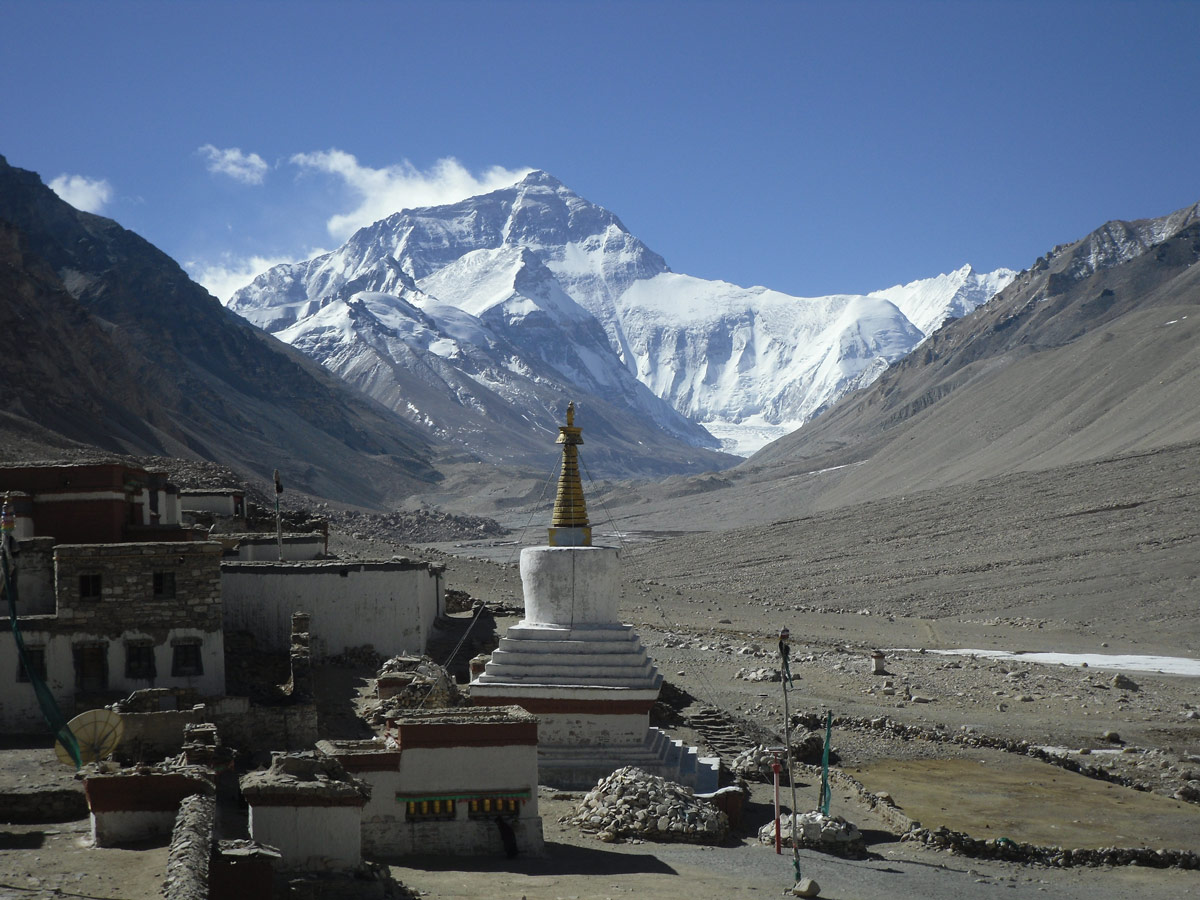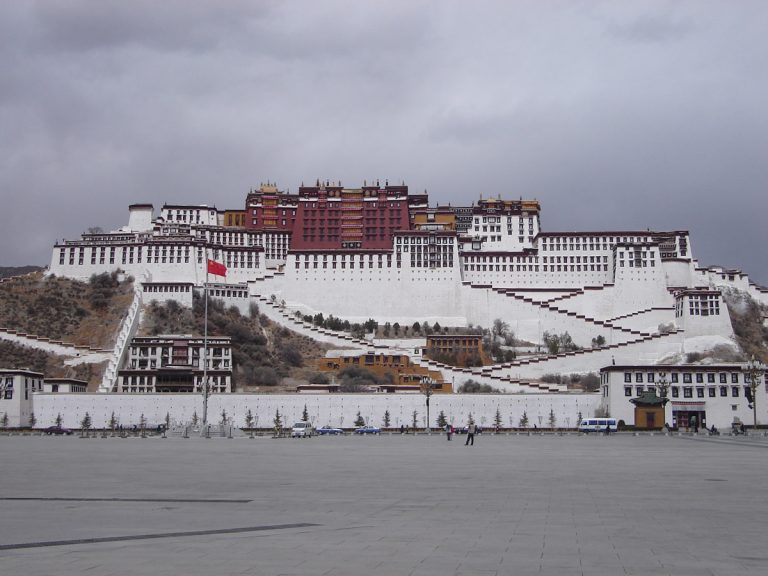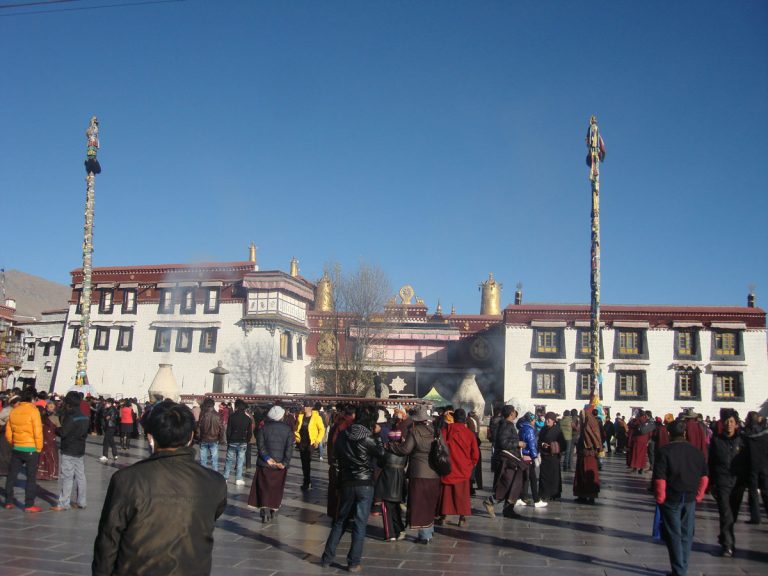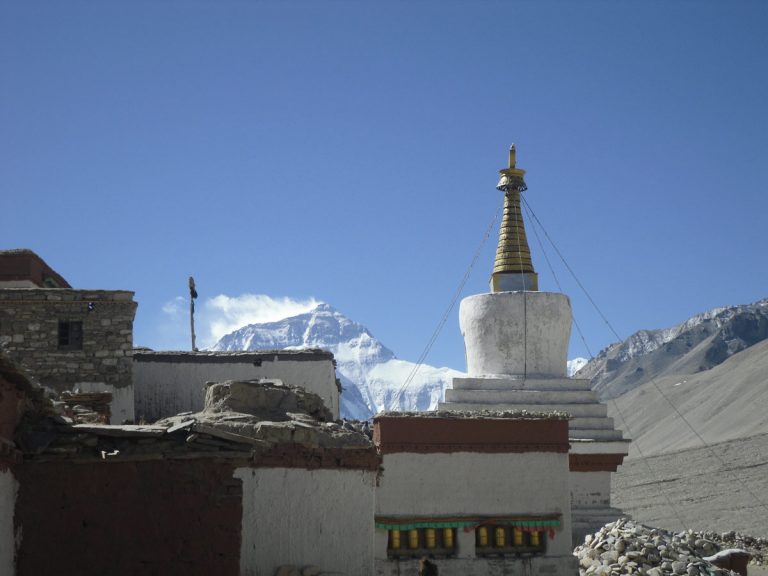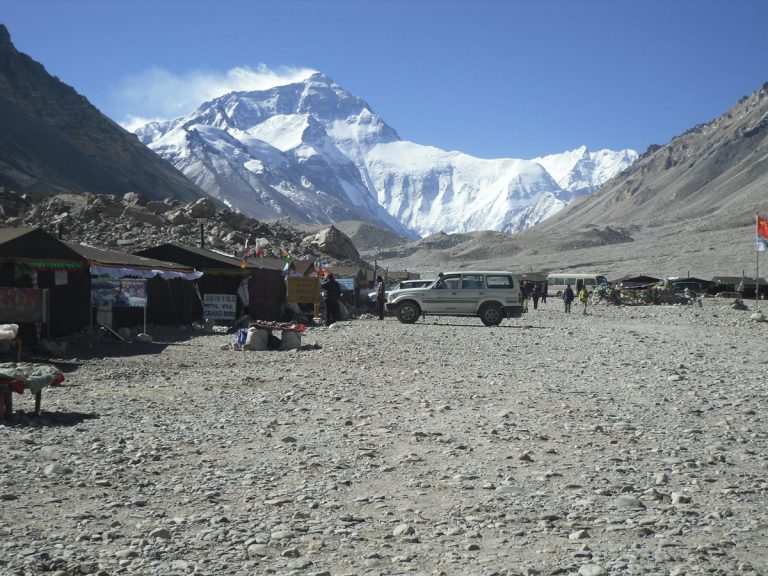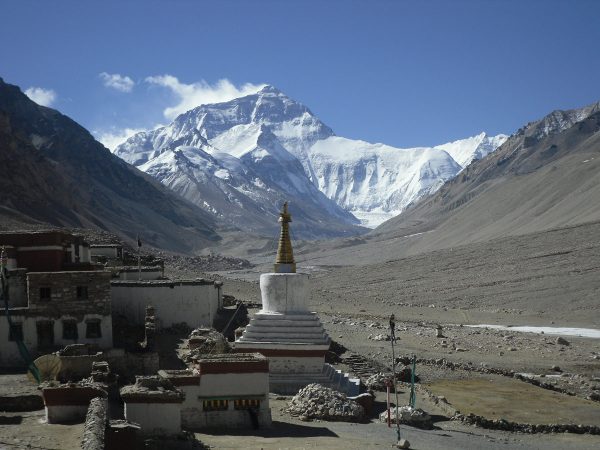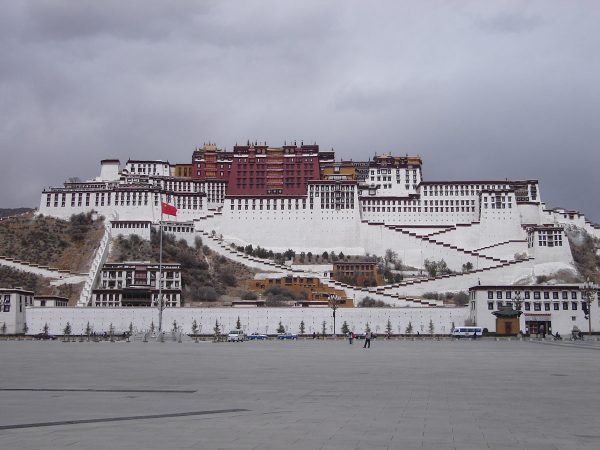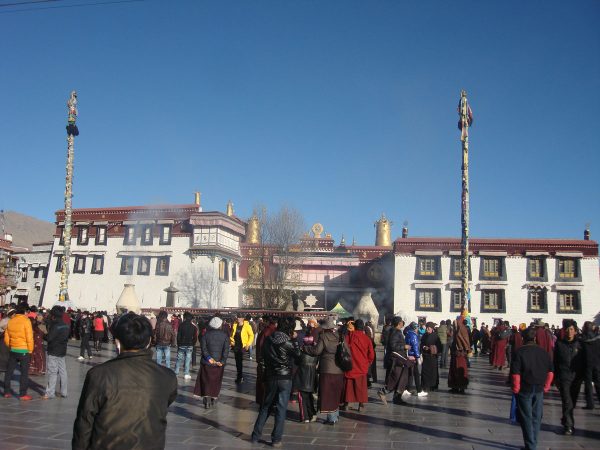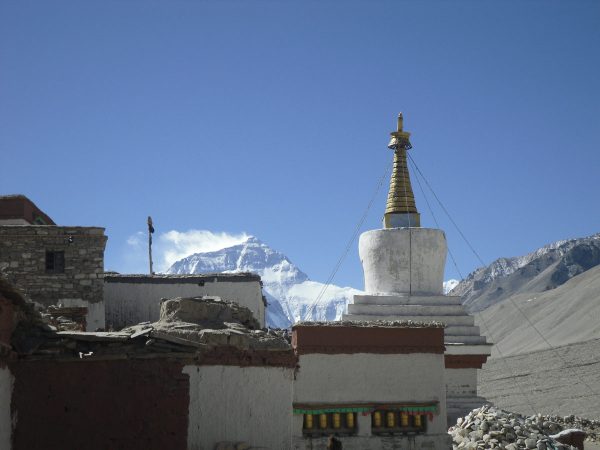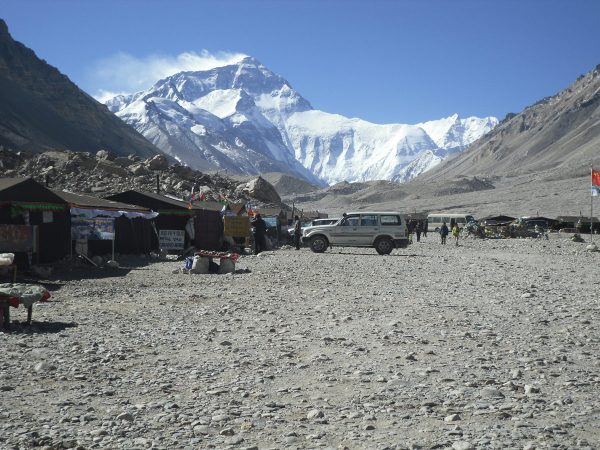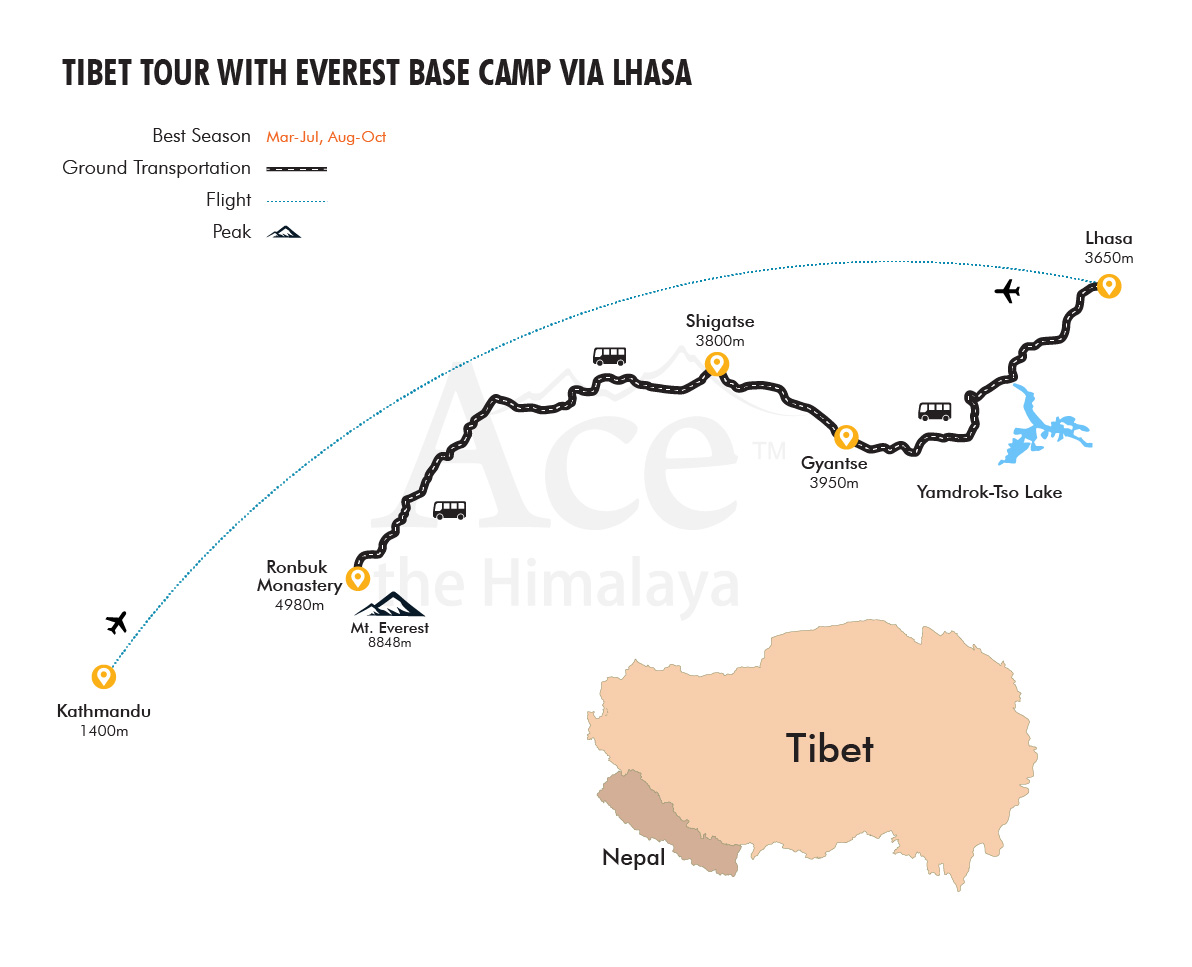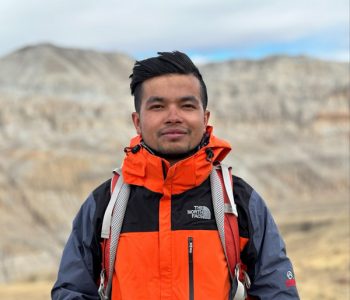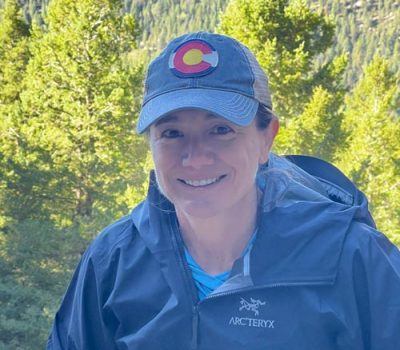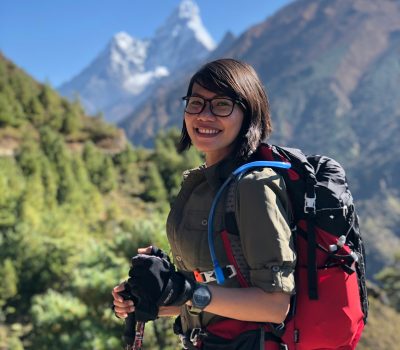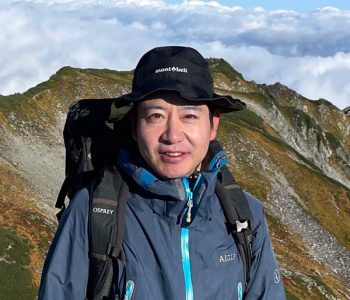Tibet Tour with Everest Base Camp via Lhasa - 15 Days
For a less challenging path to Everest Base Camp, where high-altitude adventure meets spiritual discovery, explore the cultural treasures of Lhasa and Kathmandu on this fly-in, fly-out tour.
Trip Highlights
- Explore Kathmandu’s sacred sites, including Pashupatinath Temple, Boudhanath Stupa, and Swayambhunath.
- Discover the vibrant culture of Kathmandu, Bhaktapur and Patan Durbar Squares.
- Enjoy a scenic flight between Kathmandu and Lhasa, taking in breathtaking mountain views.
- Admire the Potala Palace and Jokhang Temple in Lhasa.
- Drive across the Tibetan plateau, taking in stunning views and crossing high passes.
- Visit Gyantse’s monasteries and Shigatse’s Tashilhunpo Monastery.
- Explore Rongbuk Monastery
- Enjoy a farewell dinner in Kathmandu.
Trip Overview
Set out on an exceptional journey that blends the cultural vibrancy of Kathmandu with the awe-inspiring landscapes of Tibet, culminating in a less strenous hike to the legendary Everest Base Camp.
This Tibet Tour with Everest Base Camp via Lhasa adventure offers a seamless mix of high-altitude exploration, spiritual discovery, and breathtaking scenery into an unforgettable experience.
Your adventure begins in Kathmandu, where you’ll immerse yourself in the rich tapestry of Nepalese culture.
This trip offers a deep dive into Nepal’s cultural and spiritual heritage. Visit the sacred Pashupatinath Temple, the serene Boudhanath Stupa, and the historic Durbar Squares in Bhaktapur, Kathmandu, and Patan.
Enjoy panoramic views from Swayambhunath Stupa and explore the tranquil town of Pharping, enriching your experience of Nepal’s diverse traditions.
Fly from Kathmandu to Lhasa, Tibet’s enigmatic capital, where you’ll have the opportunity to acclimate and begin your exploration. In Lhasa, marvel at the iconic Potala Palace, wander through Jokhang Temple, and experience the vibrant atmosphere of Barkhor Bazaar.
Your journey continues across the Tibetan plateau, driving from Lhasa to Gyantse. Along the way, you’ll traverse stunning high passes and take in the majestic views of Yamdrok Lake.
One of the highlights of this trip is the scenic drive from Shigatse to Rongbuk Monastery, featuring spectacular views and the highest monastery in the world.
From Rongbuk, witness the majestic Mount Everest and the stunning Rongbuk Glacier, where you’ll stand in awe of the world’s highest peak and soak in the surrounding natural splendor.
Return to Lhasa to conclude your journey. This trip offers a perfect blend of cultural immersion, spiritual discovery, and breathtaking landscapes, ensuring an unparalleled travel experience through some of the most stunning regions of Asia.
Short Itinerary
Arrival at Tribhuvan International Airport in Kathmandu (1,400 m / 4,593 ft). Overnight at a 3-star hotel.
Prepare documents for Tibet visa application. Enjoy guided sightseeing in Pashupatinath, Boudhanath and Bhaktapur Durbar Square. Overnight at a 3-star hotel.
Complete biometrics for Tibet visa application. Guided sightseeing in Patan Durbar Square, Kathmandu Durbar Square and Swayambhunath Temple. Overnight at a 3-star hotel.
Collect passport and Tibet visa. Guided sightseeing in Pharping. Overnight at a 3-star hotel.
Free day for trip preparation or an optional hike to Jamacho. Attend a pre-trip meeting at your hotel lobby or Ace office and do any last-minute shopping. Overnight at a 3-star hotel.
Fly from Kathmandu to Lhasa (3,656 m / 11,995 ft). Pick up from Gonggar Airport and transfer to your hotel. Full rest for acclimatization. Overnight at a 3-star hotel.
Sightseeing tour in Lhasa, including Potala Palace, Jokhang Temple, and Barkhor Market. Overnight at a 3-star hotel.
Full day sightseeing in Lhasa, visiting Drepung Monastery and Sera Monastery. Overnight at a 3-star hotel.
Drive from Lhasa to Gyantse (3,950 m/12,959 ft), passing Yamdrok Lake and crossing the high passes of Kora La (5,010 m/16,437 ft) and Kamba La (4,794 m/15,728 ft). Overnight at a 3-star hotel.
Visit Pholkor and Kumbum Monastery. Then, enjoy a scenic drive through the Tibetan countryside to Shigatse (3,900 m/12,795 ft). Overnight at a 3-star hotel.
Visit Panchen Lama’s Tashilhunpo Monastery in Shigatse. Then drive to Rongbuk (4,980 m/16,338 ft), crossing Gyatchula Pass (5,200 m/17,060 ft) and passing through Xegar. Upon arrival, explore Rongbuk Monastery, the highest in the world. Overnight at a tented guest house.
Explore the Rongbuk Monastery area and drive to Shigatse. Overnight at a 3-star hotel.
Drive back from Shigatse to Lhasa. Overnight at a 3-star hotel.
Fly back to Kathmandu, enjoy a farewell dinner at a Nepali restaurant, and receive your trip certificate. Overnight at a 3-star hotel.
Transfer to the International Airport for your Final Departure.
 Trip Note
Trip Note
Tourists entering Tibet from Nepal must first form a group to obtain a Chinese Group Visa also called the Tibetan Group Tourist Visa as well as a Tibetan Travel Permit, issued by the Chinese Embassy in Nepal. This visa is only granted to groups consisting of at least four people.
Due to these new rules imposed by the Chinese Embassy regarding visa formalities, guests must arrive in Kathmandu a week before on Sunday (the preferred suitable day). This allows us to apply for the visa on Monday, obtain the visa by Thursday or Friday, and then continue the tour the next day.
The above package offer will remain valid for the year 2025 based on the current rates by FEC/TTB and Nepal Operational Costs. If there are any significant changes in the Chinese FEC/TTB rates or any major differences in operational costs in Nepal in the future for any reason, the above cost will be revised, and new rates will be applied accordingly.
Departures & Availability
Looking for personalized experience? We organize privately guided journey which is mainly designed to fit your taste and interest. We allow complete flexibility on your departure date, please choose your preferable date.
Price Includes
All airport pick-ups and drop-offs by tourist vehicle
Twin-sharing accommodation in a 3-star hotel in Kathmandu for 6 nights, including breakfast and all taxes
Twin-sharing accommodation in 3-star hotels in Lhasa, Gyantse and Shigatse for 7 nights, including breakfast and all taxes
Twin-sharing accommodation in a tented guesthouse in Rongbuk for 1 night
Kathmandu-Lhasa-Kathmandu airfare and airport departure tax
All ground transportation in a private tourist vehicle (as per the activities mentioned in the day-by-day itinerary)
All guided city tours in Nepal in a private vehicle (as per the activities mentioned in the day-by-day itinerary)
Sightseeing/monument entrance fees for the Kathmandu tour and sightseeing
Tibet Visa, entry permits, and fees for all temples, parks, monasteries, and cultural and historical sites in Tibet
Ace the Himalaya’s licensed English-speaking tour guide for Nepal and Tibet
The required number of ground staff/helpers for the tour
Food, accommodation, salary, insurance, equipment, and medicine for our ground staff
Free Ace the Himalaya duffel/kit bag, sunhat, neck gaiter (buff), and trip certificate (yours to keep)
Farewell dinner at a Nepali restaurant in Kathmandu on the last day
All government taxes and official expenses
Price Excludes
International airfare to Kathmandu and return
Meals (lunch and dinner) for the entire trip
Nepal entry visa fee – you can obtain the visa at Kathmandu airport on arrival
Travel insurance for emergency situations, medical bills, loss of baggage, flight cancellations, etc.
All personal expenses, including bottled drinks (juice, alcoholic drinks, beverages, etc.)
Tips for the Nepali tour leader, Tibetan guide, and drivers
Extra costs for accommodation, meals, transfers, and flight changes in case of early return or delays due to permit and visa issues by the Chinese government or any other uncontrolled reasons
Any additional expenses due to natural calamities, rescues, political unrest, or unforeseen circumstances
Detailed Itinerary
Expand AllDay 01: Arrival in Kathmandu
Upon your arrival at Tribhuvan International Airport in Kathmandu, you will be greeted and transferred to your hotel. This first day is dedicated to settling in and relaxing after your journey.
You can explore the hotel facilities or take a short walk around the bustling streets of Thamel, a popular tourist district known for its vibrant shops, cafes, and restaurants.
Day 02: Document Preparation and Sightseeing
Today, we complete the necessary paperwork for your Tibet visa application. After the formalities, we embark on a guided sightseeing tour.
We will visit the following sites today.
Pashupatinath Temple (UNESCO World Heritage Site)
Pashupatinath is one of the most sacred Hindu shrines in the world and lies 5 kms east of the city center. The richly-ornamented pagoda houses the sacred Linga, or phallic symbol, of Lord Shiva. Chronicles indicate the temple’s existence prior to 400 AD. Devotees can be seen taking ritual dips in the holy Bagmati River flowing beside the temple.
Boudhanath Stupa
Boudhanath Stupa is an important Buddhist pilgrimage site. The white domed stupa stands on a giant mandala. Built during the 5th century, Boudhanath is an important centre of Tibetan Buddhism. Legend has it that the bones of Kasyapa Buddha(one of Buddha’s incarnations) lies at the base of this stupa.
Bhaktapur Durbar Square
Bhaktapur Durbar Square lies in Bhaktapur, one of the three medieval cities in Kathmandu Valley. The royal square, which was built by the Malla royals, houses some of the best examples of ancient Newari art and architecture. The five-tiered pagoda temple Nyatapola, Palace of 55 Windows, Vatsala Temple, Bhairavnath Temple, Duttaraya Temple, Pujari Math, Golden Gate etc are all cultural treasures of this beautifully preserved UNESCO World Heritage Site.
Day 03: Biometrics for Visa processing and Sightseeing
In the morning, you will attend your biometric appointment for the Tibet visa application.
Later, we will visit the following places.
Patan Durbar Square (UNESCO World Heritage Site)
Patan Durbar Square is an enchanting combination of palace buildings, artistic courtyards and graceful pagoda temples. The former royal palace complex is the center of Patan’s religious and social life, and houses a museum containing an array of bronze statues and religious objects. One remarkable monument here is a 17th-century temple dedicated to the Hindu god Krishna, built entirely of stone.
Kathmandu Durbar Square (UNESCO World Heritage Site)
This complex of palaces, courtyards and temples, built between the 12th and 18th centuries, used to be the seat of the ancient Malla kings of Kathmandu. An intriguing piece here is the 17th- century stone inscription set into the wall of the palace with writings in 15 languages. The Durbar Square is the social, religious and urban focal point of the city. There are also three museums inside the palace building.
Swoyambhunath Stupa – The Monkey Temple (UNESCO World Heritage Site)
The temple watches over the valley from the top of a hillock on its western side. The huge white domed stupa is one of the holiest Buddhists sites in Nepal and its establishment is linked to the creation of the Kathmandu Valley out of a primordial lake. Swayambhu is also known as Samhengu and the Monkey temple because of the countless monkeys living in the premises.
Day 04: Visa Collection and Sightseeing
Today, we will collect your passport along with the Tibet visa and embark on a sightseeing tour of Pharping. Located approximately 19 kilometers from the main city, Pharping is a historic Newari town once known as “Shikharapuri Mahanagari” during medieval times.
Today, it is a serene, historic settlement with several notable religious and historical sites. Notably, Pharping is renowned for its cave where Padmasambhava, also known as Guru Rinpoche, meditated. He is revered for introducing Buddhism to Tibet.
Day 05: Free Day and Pre-Trip Meeting
This day is reserved for final trip preparations. You also have an option to hike to Jamacho Gumba, a popular hiking destination in Kathmandu. It is a 4-to-5-hour hike that starts early in the morning. In the afternoon, you will be back for a pre-trip meeting at your hotel lobby or the ACE office to go over last-minute details, meet your guides, and ask any remaining questions.
Use any remaining time to complete your packing and do any last-minute shopping in Thamel, known for its trekking gear shops, souvenir stores, and lively atmosphere.
Day 06: Fly to Lhasa
Today, we take a flight from Kathmandu to Lhasa. Upon arrival at Gonggar Airport, you will be met by our representative and transferred to your hotel.
The rest of the day is dedicated to rest and acclimatization to the high altitude. It is important to take it easy to help your body adjust to the thinner air of the Tibetan Plateau.
Day 07: First day of Sightseeing in Lhasa
We start our exploration of Lhasa with a visit to the iconic Potala Palace, the former residence of the Dalai Lama and a UNESCO World Heritage site. This magnificent structure offers stunning views of the city and the surrounding mountains. Next, we visit Jokhang Temple, the spiritual heart of Tibetan Buddhism, where pilgrims from all over Tibet come to worship.
We end the day at Barkhor Market, a bustling area surrounding Jokhang Temple, where you can experience the vibrant local culture and shop for unique Tibetan handicrafts.
Day 08: Second day of Sightseeing in Lhasa
Today, we continue our exploration of Lhasa with visits to two of its most important monasteries. In the morning, we visit Drepung Monastery, once the largest monastery in the world and an important center of learning.
In the afternoon, we visit Sera Monastery, known for its debating monks and beautiful complex. After the monastery visits, you have free time to revisit Barkhor Market or explore other parts of the city on your own.
Day 09: Drive from Lhasa to Gyantse
We start our journey from Lhasa, heading towards Gyantse, a town famed for its rich cultural heritage and historical significance. The drive will take us through diverse and striking Tibetan landscapes, including the mesmerizing Yamadroke Lake, known for its turquoise waters and picturesque surroundings.
We will cross high mountain passes such as Kora La (5,010 m / 16,433 ft) and Kamba La (4,794 m / 15,725 ft), each offering panoramic views of the rugged terrain and distant peaks. This scenic route allows ample opportunities for photographs and soaking in the dramatic Tibetan landscape.
Upon arrival in Gyantse, settle into your hotel and enjoy the evening at leisure. This is a great time to rest and acclimate after the high-altitude journey.
Day 10: Drive from Gyantse to Shigatse
Begin the day with a visit to Gyantse’s Pholkor Monastery, renowned for its impressive Kumbum Stupa, a multi-storied structure adorned with thousands of intricate murals and sculptures.
The monastery complex offers insight into Tibetan Buddhist art and architecture. Following the monastery visit, embark on a scenic drive to Shigatse, Tibet’s second-largest city, located 90 km away. The drive through the Tibetan countryside provides a unique view of rural life and stunning vistas.
Arriving in Shigatse, check into your hotel and enjoy some free time to explore the local area or relax after the journey.
Day 11: Drive from Shigatse to Rongbuk
Start the day with a visit to the Tashilhumpu Monastery, the seat of the Panchen Lama and one of Tibet’s most significant monasteries. The monastery is renowned for its grand architecture and large statue of the Maitreya Buddha.
Following the visit, we will drive towards Rongbuk, crossing the Gyatchula Pass (5,200 m / 17,060 ft), which offers breathtaking views of the surrounding peaks and valleys. The drive continues through picturesque Tibetan countryside, leading us to Rongbuk.
At Rongbuk, visit the Rongbuk Monastery, the highest monastery in the world, situated at 4,980 meters. The monastery provides a serene atmosphere and spectacular views of Mount Everest.
Day 12: Explore Rongbuk Monastery and return to Shigatse
After breakfast, we explore Rongbuk Monastery. From Rongbuk, take in the breathtaking views of the north face of Everest and the dramatic surrounding landscape. In addition to Everest, you can see the vast Rongbuk Glacier, which flows down from the north face of Everest.
After spending half a day here, we drive back to Shigatse, retracing our route through the Tibetan highlands. This drive offers another opportunity to appreciate the scenic beauty of the region.
Day 13: Drive back from Shigatse to Lhasa
Conclude your journey with a drive back to Lhasa. This return trip allows for a final chance to enjoy the picturesque Tibetan landscape and reflect on the incredible experiences of the past days. As you approach Lhasa, you’ll have the opportunity to relax and prepare for your departure from this fascinating region.
Day 14: Fly back to Kathmandu from Lhasa
You will be transferred to the airport for your departure flight to Kathmandu. This marks the end of your journey through Tibet, leaving you with unforgettable memories of the cultural and spiritual experiences you’ve had.
Upon landing in Kathmandu, you will be transferred to your hotel. In the evening, you will celebrate the trip with a farewell dinner in a fine traditional Nepali restaurant.
Day 15: Day 15: Transfer to the International Airport for your Final Departure
As our incredible adventure through the breathtaking landscapes of Tibet and Nepal draws to a close, it’s time to bid farewell. To ensure a smooth and comfortable departure, one of our dedicated airport representatives will accompany you to the International Airport, assisting with any final arrangements as you prepare for your journey back home.
Packing List for Kathmandu to Lhasa Tour
All you need to bring for this Tour is simply some comfortable clothes; there is not any requirement of special equipment on the tour. However, for your ease, the following gives you the general idea.
We provide a 75-liter duffel bag for you to use for the tour. It will be given to you during your pre-trip meeting in Kathmandu. The duffle bag is yours to keep.
Here is a list of what you might want to pack for the tour.
General
- Duffel or rucksack bag or suitcase (We will provide one complimentary Ace duffel bag for you to keep.)
- 4 seasons Sleeping bag (can be rented for USD 35)
- Daypack (35-45 liters recommended) with rain cover
- Down Jacket (can be rented for USD 35)
- Warm wool or synthetic hat that covers your ears
- A pair of pair warm gloves
- T-shirts, cotton pants (loose jeans/khakis), shorts, and a waterproof shell jacket
- Lightweight long underwear/thermals
- Light camping shoes or sneakers
- Sandals/flip-flops (Optional)
- Sunglasses
- Neck gaiter
- Daypack (35-45 liters recommended) with rain cover
- Wool or technical fabric liner gloves
- Liner socks (optional such as silk)
Medicines And First Aid Kits
(Please note our guide will also carry the first-aid bag during the tour. However, we still recommend you bring your personal first-aid kit as well.)
- Ibuprofen for general aches and pains
- Immodium or Pepto Bismol capsules for upset stomach or diarrhea
- One small-sized first-aid kit with blister treatments such as mole skin, band-aids, some waterproof tape, anti-infection ointments, etc
Other Essentials
- Passport
- Extra copies of passport-sized photos
- Reusable water bottle
- Toiletry kits
- Lip balm
- Sunscreen
- Waterproof/dry bags for carrying important documents and money
- Airline tickets (Please leave a copy at our office in Kathmandu. This can be useful if there is a change in the date of the flight.)
Optional
- Power bank or extra batteries
- Cameras and mobile phone
- Binoculars
- Cards/book
This list is only a guide. There are numerous options, brands, and versions of each piece of clothing and equipment. Use your experience and the listed features to find the best gear for you. Some of the above equipment can be easily found in stores in Kathmandu.
Trip Video
FAQs for Tibet Tour with Everest Base Camp via Lhasa
General
Is there a minimum and a maximum number for your groups?
The Tibetan Group Tourist Visa, issued by the Chinese Embassy in Nepal is only granted to groups consisting of at least four people. Hence, our groups consist of minimum four people for all Tibet trips. The maximum number of travelers for private trips can vary as per travelers’ group size.
How far in advance should I book my tour?
It is recommended to book your tour at least 30 days in advance from the departure day to ensure all necessary arrangements and permits are secured.
Is Ace the Himalaya's staff insured?
Yes, our company insures all our trekking staff members, including guides, cooks, Sherpa, and porters. Please browse through our legal document page to view insurance details.
Do your guides speak good English?
Yes, you will be accompanied by an experienced English-speaking Nepali guide while in Nepal. Once you enter Tibet, you will be guided by an experienced Tibetan guide who will not only act as an interpreter but also provide valuable insights into the Tibetan way of life.
Many Tibetan guides have different accent of English-speaking capacity due to their mother tongue and Tibetan language, which makes hard to understand while in the conversation with them. Hence, our travelers must consider these facts before you book for any trip to Tibet.
What immunizations will I need?
It is not mandatory but you can take some cold flu immunization as precaution. Typhoid vaccination is recommended but not required.
We suggest you have a dental checkup before your trip and know your blood type. It is helpful if you inform us of any medical condition that is relevant so we may convey this information in the event of an emergency. Ace the Himalaya keeps your medical condition confidential unless treatment is necessary.
I want to extend my holiday, any recommendations?
Yes, you can extend your holiday in Nepal and Bhutan. However, extending your trip duration in Tibet is not permitted by the authorities.
Ace the Himalaya provides various options and alternatives for extending your holiday in Nepal and Bhutan. For more details, please visit our Trip Extension page.
Physical Fitness
How fit do I need to be for this tour? Is this trip for me?
Yes, it is highly recommended to be in good physical condition when undertaking this tour, as it involves traveling to high-altitude regions.
Travelers with high blood pressure, asthma, migraines, or heart problems should consult their doctor for a thorough evaluation and obtain medical certification before tour.
Those with chronic conditions such as diabetes should ensure they have a regular medication plan and closely monitor their health throughout the trip.
Is there an age limit for the tour?
Tours in Tibet are prohibited for individuals aged 80 and above due to challenging conditions and potential health risks. Individuals aged 70-79 are required to obtain proper medical certification from a doctor confirming they are fit to travel.
Payments and Extra Costs
Can I use credit cards in the places I visit?
No, credit cards are generally not accepted for international visitors. Visa cards are only allowed to be used by domestic tourists or locals.
What currency or card should I carry instead of a credit card?
Cash is the best option to carry instead of a credit card. Only Chinese Yuan is accepted in Tibet. It’s best to exchange your money for Chinese Yuan, which can be done in Kathmandu or at the airport.
When exchanging money at local exchange centers in Kathmandu or at the airport, please ensure you’re accompanied by your guide to avoid the risk of receiving counterfeit notes.
How much additional money do I need per day?
Your daily expenses will vary depending on your spending habits.
In Nepal, a budget of USD 15 to 20 per day should be sufficient to cover lunch, dinner, bottled water, and other essentials.
In Tibet, a budget of around USD 30 per day should be enough to cover the cost of meals and drinks.
Do I need to tip my guide and driver ? How much would that be?
Tipping is part of the local culture, and guides expect it as a reward for their service. While not mandatory, it is appreciated. Typically, $10 to $20 per day per person is offered, reflecting your satisfaction and personal interaction with your guide.
Arrival and Visas
Will somebody come to pick me up at the Airport upon my arrival?
Yes, our airport representative will be there to greet you at the airport. S/he will be displaying an Ace the Himalaya sign-board. Upon arrival, you will be transferred to your hotel.
Do you handle Tibet visa and travelling permit?
Yes, we handle all procedures for the Tibet Visa and Travel Permit, with processing charges included in the trip price. Tourists entering Tibet from Nepal must form a group of at least four to obtain a Chinese Group Visa and a Tibetan Travel Permit, issued by the Chinese Embassy in Nepal.
Due to new regulations, guests should arrive in Kathmandu a week in advance, preferably on a Sunday. This allows us to apply for the visa on Monday, obtain it by Thursday or Friday, and continue the tour the next day.
Weather and Temperature
What is the best season for this tour?
The best time for the tour is between April and October. The tour is usually avoided in peak winter season i.e. November to February.
What is the weather and the temperature like during the tour?
Tibet climate is unexpected and drastically changes due to its geographical condition situated with a minimum elevation of 3,500 m high. You can find average low temperature keeping the climate chilled most of the time in whole year due to high elevation, low humidity and strong wind.
However, at present day, Tibet is also affected by the Global warming so you can feel hot temperature in a daytime during summer season. Whereas you will experience minus 10 to minus 20 degrees temperature in the night and 10-25 degree in the day.
Summer (June-August): 7 to 12 degrees in the night and 20 to 25 degrees in the day.
Autumn (Sept-Nov): 5 to -10 degrees in the night and 15 to 20 degrees in the day.
Winter (Dec-Feb): -10 to -20 degrees in the night and 10 to 15 degrees in the day.
Spring (March-May): 5 to -5 degrees in the night and 15-20 degrees in the day.
Accommodation
What sort of accommodation can I expect in Kathmandu and in the tour?
In Kathmandu, you’ll stay in standard rooms at 3-star hotels, with breakfast included.
In Tibet, we use 3-star hotels in Lhasa, Gyantse and Sigatse.
In Rongbuk we use basic tented guesthouse.
Lhasa offers a range of hotels from budget to luxury. Budget Hotels offers basic amenities, simple rooms, and limited services. On the other hand, luxury hotels provide comfort, extensive services, with Tibetan-themed decor.
If you want to upgrade your accommodation to a higher standard in Kathmandu or Tibet, please contact us.
What sort of food can I expect in the tour?
Breakfast during the trip is included in our package.
While on the tour, expect to find predominantly local Tibetan cuisine in the mountain region, as international dishes are not typically available in hotels or restaurants. In Lhasa, you’ll have access to a broader variety of dishes, many restaurants in Lhasa serve Chinese dishes, ranging from Sichuan to Cantonese cuisine.
Lhasa has a growing number of international restaurants and cafes offering Western-style food, such as pizza, pasta, and burgers. Some restaurants in Lhasa also offer vegetarian and vegan options.
Is the water fine to drink? Do I need to bring purifying tablets/filter?
Tap water throughout the trip is generally unsafe to drink directly. In Kathmandu, you can purchase bottled mineral water for the Nepal portion of your journey.
While in Tibet, our guide and staff will provide purified water free of charge. However, if you prefer bottled mineral water, it will be available at an additional cost, payable directly to the hotels and guesthouses.
Transportation and Flights
What mode of transportation do you use?
Ace the Himalaya is dedicated to offering you authentic local insights, cultural experiences, and thrilling adventures. We offer a range of deluxe and luxury vehicles to ensure a comfortable and relaxing trip in Tibet.
Depending on your group size, we can arrange various types of transportation, including Jeeps, SUVs, vans, Hiace vans, coasters, and buses, to suit your needs and enhance your experience in the highlands.
Do I need to book my international flights for the travel to Nepal?
Yes, you will need to book your international flights to and from Nepal, as we are a local agency and do not handle international flight arrangements. You can easily browse airline websites to find and book the most convenient flights for your travel plans. However, if you need any assistance, we are more than happy to help.
Please note that your flight back from Lhasa is included in the travel package, so there’s no need to worry about arranging it separately.
What is the flight duration between Kathmandu and Lhasa?
The flight duration between Kathmandu (Tribhuvan International Airport) and Lhasa (Lhasa Gonggar Airport) is approximately 1 hour and 30 minutes. This flight offers stunning aerial views of the Himalayan range, including Mount Everest. However, flight times can vary slightly depending on weather conditions and air traffic.
Why is there no direct flight from Lhasa to my home country, and why do we return to Kathmandu instead?
The reason we return to Kathmandu instead of offering direct flights from Lhasa to your home country is due to a policy that requires the return flight for all travelers to be to the same destination.
Given that our groups are often mixed, with participants heading to different home countries, it’s more practical and organized to fly everyone back to Kathmandu first. From there, each traveler can easily connect to their respective international flights home, ensuring a smoother and more coordinated departure process for the entire group.
Miscellaneous
Will it be possible to get any clothes washed/Laundry?
Laundry service is easily available at your hotel in Kathmandu while the services might be limited in Tibet. Laundry and dry cleaning are possible in Tibet side town area. These services usually cost additional charge.
Are there any communication facilities during the tour?
Yes, there are communication facilities available throughout the tour. Most hotels provide Wi-Fi access.
You can purchase and get new Chinese SIM Card for the best means of communication and for the messaging platform.
To get a Chinese SIM card, you will need to provide one photograph and a copy of your passport. It is advised to use WeChat as the best means of communication instead of WhatsApp and Viber. We highly recommend you to active your WeChat account.
Can I charge my digital camera or other equipment on my trip?
These facilities will be available in your hotel, sometimes with an extra charge. Remember to bring travel adapters!
Is internet available during the trip?
Yes, good internet connectivity is available in Kathmandu, and most hotels along the route offer Wi-Fi services. You also have an option to use internet from local SIM card in the form of Mobile data.
In Tibet, access to social media is limited, so using a VPN is necessary to access these platforms. Despite these restrictions, WhatsApp and WeChat are available and can be used without a VPN.
Traveler Reviews
These full and frank reviews are from travelers who have traveled with Ace the Himalaya previously. The reviews and experiences shown here are from reputable travel websites like TripAdvisor & Google.
 Google Reviews
Google Reviews
What makes this trip different ?
Our CSI with Sambhav Nepal
- Ace the Himalaya believes in giving back to the communities that surround and support tourism in Nepal. Ace provides logistical support and, if needed, cash donations to the projects of Sambhav Nepal (a local NGO).
- Sambhav Nepal and Ace work together to plan volunteer programs that will bring in foreign volunteers and make use of their enthusiasm, time, and talents in a variety of projects.
Sustainability and Responsible Tourism
- Of the few Travelife Certified companies in Nepal, Ace the Himalaya is one. We respect the procedures for sustainable tourism. Our excursions are socially and environmentally conscious, leaving the lowest possible impact in the Himalayas.
- About 80% of Ace the Himalaya’s staff members are natives of the regions where our trips are organized. It is one of our sustainable and responsible efforts to help local communities, support small businesses, and promote regional culture and way of life.
